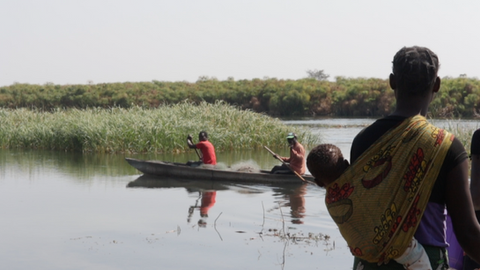Why we have a marine unit
- Sep 1, 2021
- 1 min read

Lake Itezhi Tezhi was formed in the 1970s and covers an area of some 37,000 hectares. Its formation after the dam was built caused a gold rush, or rather a fish rush, creating livelihoods for those communities living around the lake, especially in Itezhi Tezhi town itself which is almost entirely supported by the fish caught in the lake.
Those who had previously earned their incomes from illegal activities, such as poaching, now had a plentiful resource, and a legal one, from which they could earn a living. This resulted in the wildlife around the lake bouncing back after years of persecution. However, soon demand was outstripped by the supply, driven by illegal fishing and unsustainable fishing practices. This has meant that the draw of conventional poaching has risen again.
The vast Lake sits on the boundary of the Park, providing convenient access and exit routes into the Park. So now poachers, masquerading as fishermen, carry snares and firearms into the Park undetected among hundreds, if not thousands, of fishermen.

It is the Marine Anti-Poaching Unit who interdict this activity. Either on foot or by boat, these Marine Rangers risk their lives on a daily basis to patrol the lake and its shores in order to apprehend suspects involved in the illegal wildlife trade. Dodging hippos and crocodiles, these Rangers lay ambushes in known hotspots of illegal activity, protecting the wildlife and wild spaces in which the operate.
Contributors: James Amoore (Resource Protection Director)
























Comments